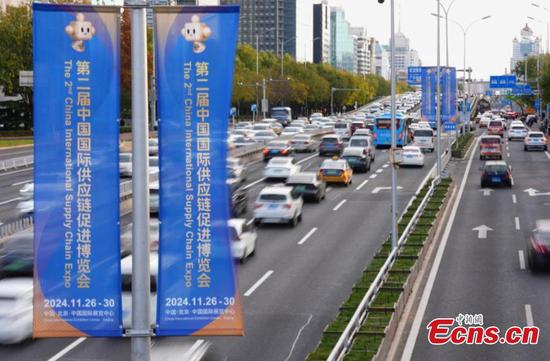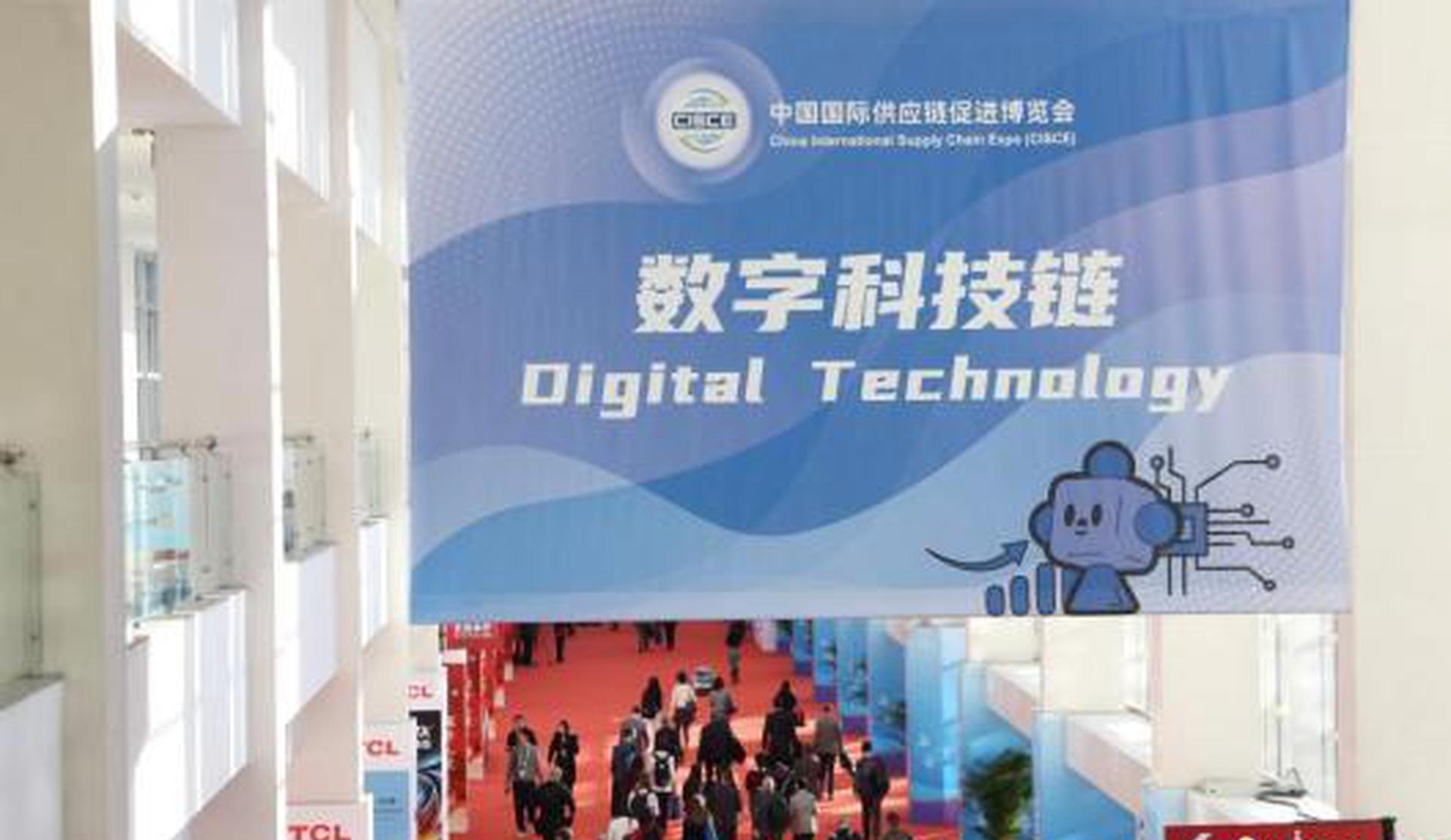EconoScope | CISCE aims to turn global supply chains into a 'win-win chain'
(ECNS) -- The ongoing second China International Supply Chain Expo (CISCE) in Beijing has attracted over 600 enterprises from about 70 countries, marking a 20-percent rise in exhibitors compared to the previous event.
It shows the attractiveness of China's strong and resilient supply chains and vast market as well as China’s resolution to make global supply chains a “win-win chain” for international cooperation.
Among the exhibitors, over 60 percent are world's top 500 companies and leading industry enterprises.
Besides, overseas exhibitors rose from 26 percent in the first session to 32 percent, with those from Europe and the U.S., and those from over Belt and Road Initiative (BRI) partner countries accounting for about half each.

Apple CEO Tim Cook toured the CISCE site on Monday and stated his high regard for Apple's Chinese partners. “We cannot do what we do without them,” he said.
Apple has some 200 major suppliers, with more than 80 percent manufacturing products in China, according to a display board at the stand of the company, which obviously showed that it not only attached great importance to the Chinese market, but supply chains its Chinese partners deeply involved in.
Multinational corporations’ participation in the CISCE not only shows the strong attraction of the Chinese market, but also will promote supply chains to become a win-win chain, said Xiao Song, global executive vice president of Siemens, and president and CEO Siemens Greater China.
With products covering more than 200 countries and regions worldwide, Siemens will give full play to its potential as a host to integrate enterprises of different countries, scales and types engaged in its supply chains into the same “friend circle”, so as to jointly promote global industrial chains and supply chains in the direction of strong resilience and sustainable development, Xiao stated.
Influenced by the rise of protectionism, public health crisis and geopolitical turmoil in recent years, the industrial chain and supply chain cooperation tends to slip into the wrong path of pan-politicization and pan-securitization. Experts focus on how the global supply chain cooperation will cope with these issues and break new ground.
Ren Hongbin, president of the China Council for the Promotion of International Trade (CCPIT), said as countries vary from resource endowments and development levels, economic and trade cooperation is the right way to complement each other and realize a mutually beneficial result.
Global supply chain connectivity is an unstoppable trend and economic globalization remains a shared goal, Ren noted.
According to Zhao Ping, dean of the CCPIT Academy, studies found that from 2014 to 2023, the connectivity index of global supply chain showed a fluctuating upward trend.
However, she emphasized that even with external shocks such as the COVID-19 pandemic, natural disasters, geopolitical conflicts, and the policies of decoupling, unilateralism, protectionism, and anti-globalization adopted by some countries in certain historical periods, their negative impacts on global supply chain connectivity are short-lived and limited, which fully demonstrates that global supply chain connectivity is an irresistible trend and economic globalization is what people want.
“Emerging new technologies are solving traditional supply chain challenges,” Zhao said.

